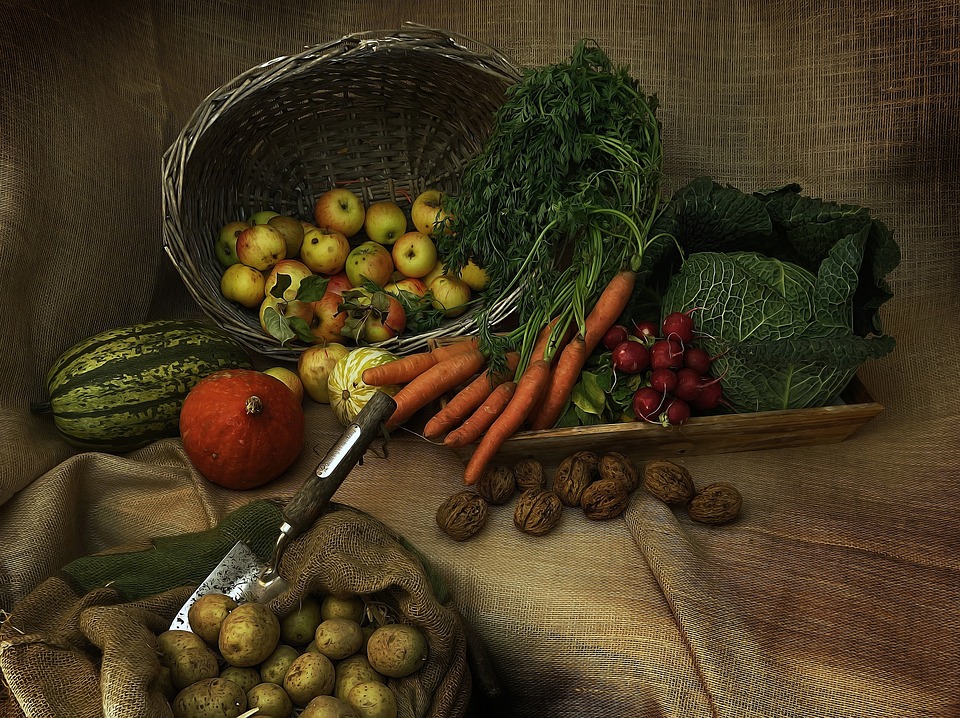Unleashing the Power of Superfoods: A Comprehensive Nutrition Guide
[ad_1]
Unleashing the Power of Superfoods: A Comprehensive Nutrition Guide
Superfoods are nutrient-rich foods that offer a multitude of health benefits. Packed with essential vitamins, minerals, antioxidants, and other compounds, they are known to boost immunity, fight diseases, promote mental clarity, enhance digestion, and improve overall well-being.
Understanding Superfoods
Superfoods come in various forms, including fruits, vegetables, grains, nuts, and seeds. Each of them possesses unique nutritional properties that contribute to our health in different ways. Incorporating a diverse range of superfoods into your diet can help you maintain a balanced intake of essential nutrients.
1. Berries
Berries such as blueberries, strawberries, raspberries, and blackberries are renowned as antioxidant powerhouses. They are loaded with phytochemicals and vitamins that combat free radicals, reduce inflammation, and protect against chronic diseases like cancer and cardiovascular issues.
2. Leafy Greens
Leafy greens like spinach, kale, and Swiss chard are packed with essential nutrients like vitamin A, C, and K, folate, and calcium. They also contain antioxidants like lutein and zeaxanthin, which promote healthy vision and protect against age-related macular degeneration.
3. Nuts and Seeds
Almonds, walnuts, chia seeds, flaxseeds, and hemp seeds are rich in healthy fats, fiber, vitamins, minerals, and antioxidants. They help reduce inflammation, support brain health, lower cholesterol levels, and aid in weight management.
4. Whole Grains
Quinoa, brown rice, oats, and buckwheat are some examples of nutrient-dense whole grains. They provide a good source of complex carbohydrates and fiber, which contribute to balanced blood sugar levels, healthy digestion, and long-lasting energy.
5. Fish and Lean Proteins
Fish like salmon, sardines, and mackerel contain omega-3 fatty acids, which support heart health, reduce inflammation, and improve cognitive function. Lean proteins like chicken, turkey, and tofu are essential for repairing and building tissues, promoting muscle growth, and supporting a healthy immune system.
How to Incorporate Superfoods into Your Diet
Incorporating superfoods into your daily diet is easier than you think. Here are some tips to help you get started:
- Start your day with a nutritious smoothie made with a combination of berries, leafy greens, and a source of healthy fats like chia seeds or almond butter.
- Add a variety of colorful fruits to your breakfast, salads, or snacks to increase your antioxidant intake.
- Replace refined grains with whole grains like quinoa or brown rice to boost your fiber and nutrient intake.
- Include a portion of lean protein in your meals, whether it’s fish, poultry, or vegetarian options like tofu or legumes.
- Snack on nuts and seeds for a quick energy boost or sprinkle them onto your meals and snacks for added nutrition.
Conclusion
Incorporating superfoods into your diet can have a profound impact on your overall health and well-being. They provide a wide range of essential nutrients, antioxidants, and other beneficial compounds that support various bodily functions and help prevent chronic diseases. By embracing superfoods and making them a regular part of your meals, you can unleash their power and experience the remarkable benefits they offer.
Frequently Asked Questions
Q: Can superfoods alone make up for an unhealthy diet?
A: While superfoods are highly nutritious, they cannot compensate for a poor diet overall. It’s important to consume a well-balanced diet that includes a variety of fruits, vegetables, whole grains, lean proteins, and healthy fats, in addition to incorporating superfoods.
Q: Are superfoods expensive?
A: While some superfoods can be pricier than others, there are many affordable options available. Buying seasonal fruits and vegetables, opting for frozen superfoods, and purchasing in bulk can help make them more budget-friendly.
Q: Are there any potential side effects of consuming superfoods?
A: Superfoods are generally safe to consume as part of a balanced diet. However, it’s important to be mindful of any personal allergies or sensitivities you may have. Consult with a healthcare professional if you have any concerns or specific medical conditions.
[ad_2]

